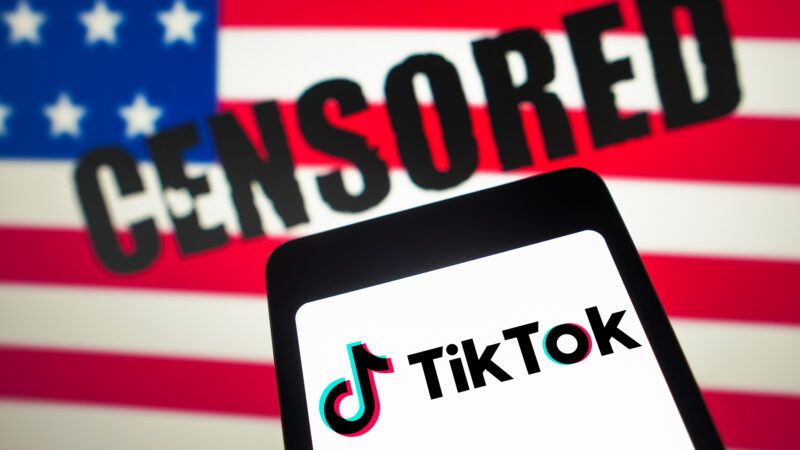TikTok's Opponents Want Chinese-style Censorship in America
Instead of freeing Americans from censorship, the TikTok bill would tighten the U.S. government's control over social media.

The House of Representatives voted 352-65 on Wednesday for a bill that threatens to ban the social media platform TikTok. The Protecting Americans from Foreign Adversary Controlled Applications Act would ban TikTok from app stores unless its Chinese parent company ByteDance gives up ownership within six months.
The vote moved America a little bit closer to the Chinese-style online censorship that TikTok's opponents decry. Whether they acknowledge it or not, TikTok's opponents are using the same arguments that Chinese and Iranian censors can—and do—use to justify cracking down on social media in their own countries.
Chinese authorities have long maintained a "Great Firewall" over the country's internet, driven by the idea that the success of American tech companies is a threat to their "cyber sovereignty." The Iranian government, too, has begun to embrace the idea of "internet sovereignty," banning foreign social media networks in favor of Iranian-controlled platforms.
American lawmakers have started to push the same notions. In a March 5 joint statement, Republican and Democratic members of the House Select Committee on the Chinese Communist Party claimed that foreign control of a social media platform is a threat to U.S. sovereignty.
"America's foremost adversary has no business controlling a dominant media platform in the United States," committee chairman Rep. Mike Gallagher (R–Wis.) said. Ranking Member Raja Krishnamoorthi (D–Ill.) added that the TikTok bill will protect Americans "from the digital surveillance and influence operations of regimes that could weaponize their personal data against them."
Foreign censors could rightfully make the same complaints about American social media. The U.S. government has infamously prodded tech companies to hand over user data, both overtly and covertly. The U.S. military and intelligence services even use advertising data to track potential targets.
It's true that TikTok's content moderation falls in line with the wishes of Chinese censors. But again, foreign critics can say the same about U.S.-based social media companies.
The Biden administration has used the specter of "disinformation" to push social media moderation in line with their policies. Meta has censored Middle Eastern content that opposes U.S. foreign policy, while Twitter has created loopholes for the U.S. military to run its own propaganda accounts.
Of course, American law (unlike Chinese or Iranian law) limits how much the government can censor social media. Last year, courts banned and then unbanned the Biden administration from pressuring social media moderators. But the decision ultimately lies in Washington; it's not like European or Latin American voters have any say over the U.S. Supreme Court.
Competition is the strongest force keeping the internet free. Whenever users find a topic banned on TikTok, they can escape to Twitter or Instagram to discuss the censored content. And when Twitter or Instagram enforce politically motivated censorship on a different topic, users can continue that discussion on TikTok.
Forcing TikTok under American control is a way to block that escape route. Instead of protecting Americans from Chinese censorship, it would bring Chinese-style censorship home.


Show Comments (47)